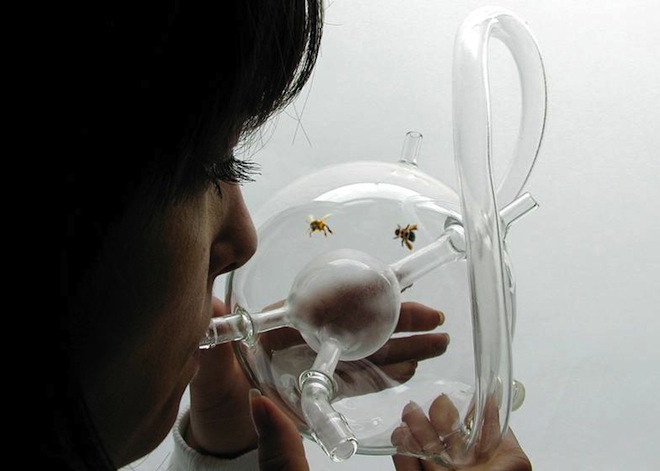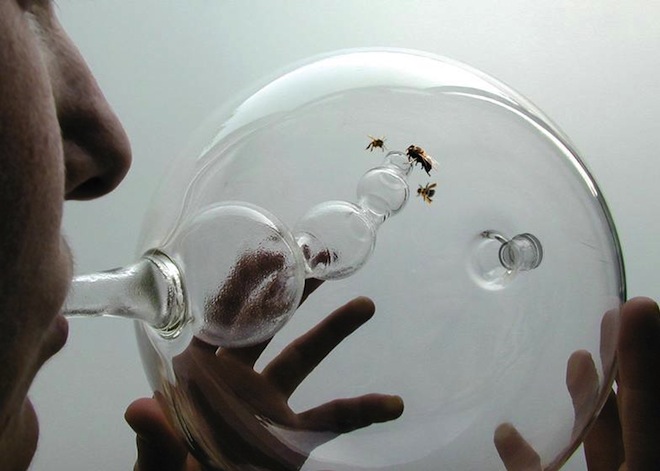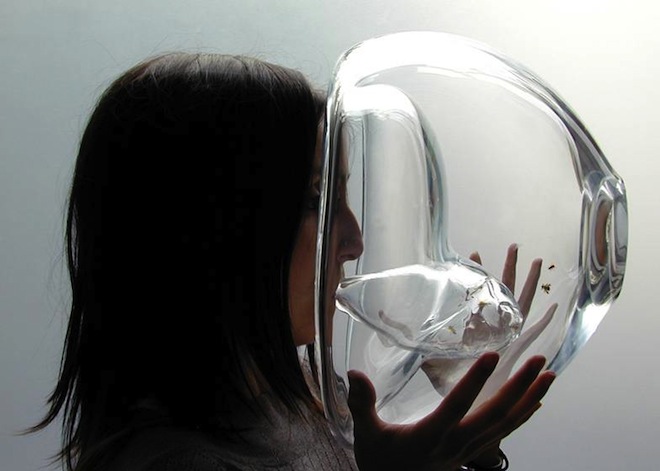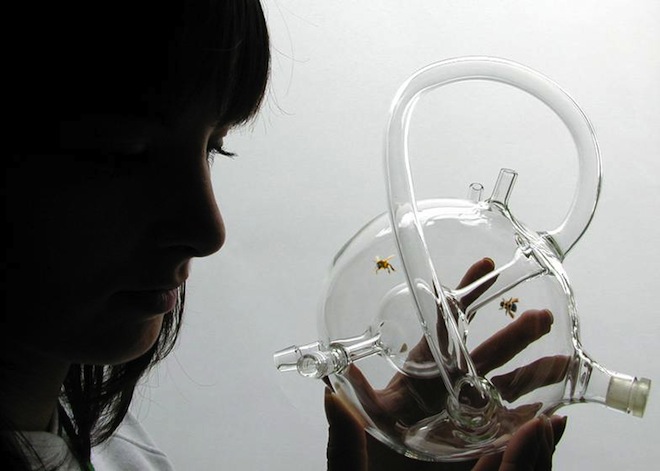 It turns out that bees are not only essential to global food production, they also make amazing sniffer “dogs.” Which is how Portuguese designer Susana Soares is able to train Apis mellifera to detect cancer and tuberculosis on human breath.
It turns out that bees are not only essential to global food production, they also make amazing sniffer “dogs.” Which is how Portuguese designer Susana Soares is able to train Apis mellifera to detect cancer and tuberculosis on human breath.
Soares recently presented a glass bowl or horn-like device with a mouth piece and two chambers at Dutch Design Week in Eindhoven.
Men and women exhale into the glass horn and bees, which have been trained to detect odors associated with certain diseases such as various kinds of cancer and tuberculosis, quickly dart from the primary chamber into the secondary chamber if the odor appears.
These bees have been trained with Pavlov’s reflex within a mere 10 seconds. Presented with the biomarkers associated with lung, skin or pancreatic cancer, along with a serving of sugar, they “remember” this odor for as long as they live – up to six weeks or so.
During the cancer test, they are rewarded with sugar every time the odor shows up, ensuring a reliable, early disease diagnosis.
“These insects are very accurate in early medical diagnosis through detection on a person’s breath,” according to the designer. “Bees are a sustainable and valuable resource. After performing the diagnose [sic] in the clinic they are released, returning to their beehive.”
With an extraordinary sense of smell in the parts per million range, bees have been used in other applications as well – including those formerly reserved for hound dogs.
“Bees have also been trained to detect explosives,” according to Dezeen, “and a company called Insectinel is training “sniffer bees” to work in counter-terrorist operations.”
This is a fascinating and groundbreaking design, which could have enormous consequences for the medical community, particularly in areas where health care services are scarce.
“There’s plenty of interest in the project especially from charities and further applications as a cost effective early detection of illness, specifically in developing countries,” Soares said.
:: Dezeen







Comments are closed.